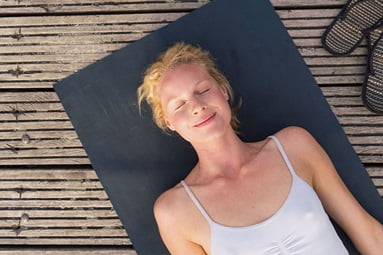
Snow blindness: Sunburn of the eyes
Brilliant winter skies, perfect skiing conditions and clement temperatures have always been a good reason to head for the mountains. But be sure to remember your sunglasses, in addition to warm clothing and sun cream. After all, not only your skin, but your eyes, too, are subject to sunburn.
06.12.2023
"Sunburn of the eyes", or what is commonly referred to as snow blindness, involves damage to the eye membranes from excessive exposure to ultraviolet rays. Ultraviolet light is stronger in the mountains than in the lower regions. In addition, sun rays reflect off the snow, which can further exacerbate sunburn-like injuries to the eye.
Prevention
How to best protect your eyes against snow blindness:
- Wear tested sunglasses with strong UV protection. We recommend that children wear glasses made from plastic in order to reduce the risk of accidents.
- Additional protection on the sides of your glasses prevents scattered radiation from intruding indirectly.
- Lenses with UV protection are only marginally effective because parts of the eye are shielded inadequately. For this reason, anyone with contact lenses should always wear sunglasses as well.
Symptoms
The symptoms are usually felt only three to twelve hours later. The following can be an indication of snow blindness:
- Red or inflamed eyes
- The eyes hurt badly
- A feeling as if there is a foreign object
- Strong tearing by the eyes
- Cramps of the lids; having to keep the eyes closed because they cannot tolerate light.
Treatment
If you experience any of the symptoms mentioned above, we recommend the following steps to alleviate the pain:
- Put cool compresses on the lids.
- Stay in bed in a pleasantly darkened room.
- If you wear contact lenses, remove them in order to avoid additional irritation.
- You can try using non-prescription medication such as Paracetamol or Ibuprofen.
- We recommend that you use eye cream or drops, or that you visit your doctor.
In the event of further health-related questions, SWICA customers can contact the santé24 telemedicine service free of charge on +41 44 404 86 86. A telemedicine practice licence allows santé24 physicians to provide additional medical services in cases that are suited to a telemedicine approach. SWICA customers can also use the BENECURA medical app to carry out a digital SymptomCheck and receive recommendations about what to do next. During a subsequent phone call with santé24, customers can decide for themselves whether to release their information from SymptomCheck to santé24.







